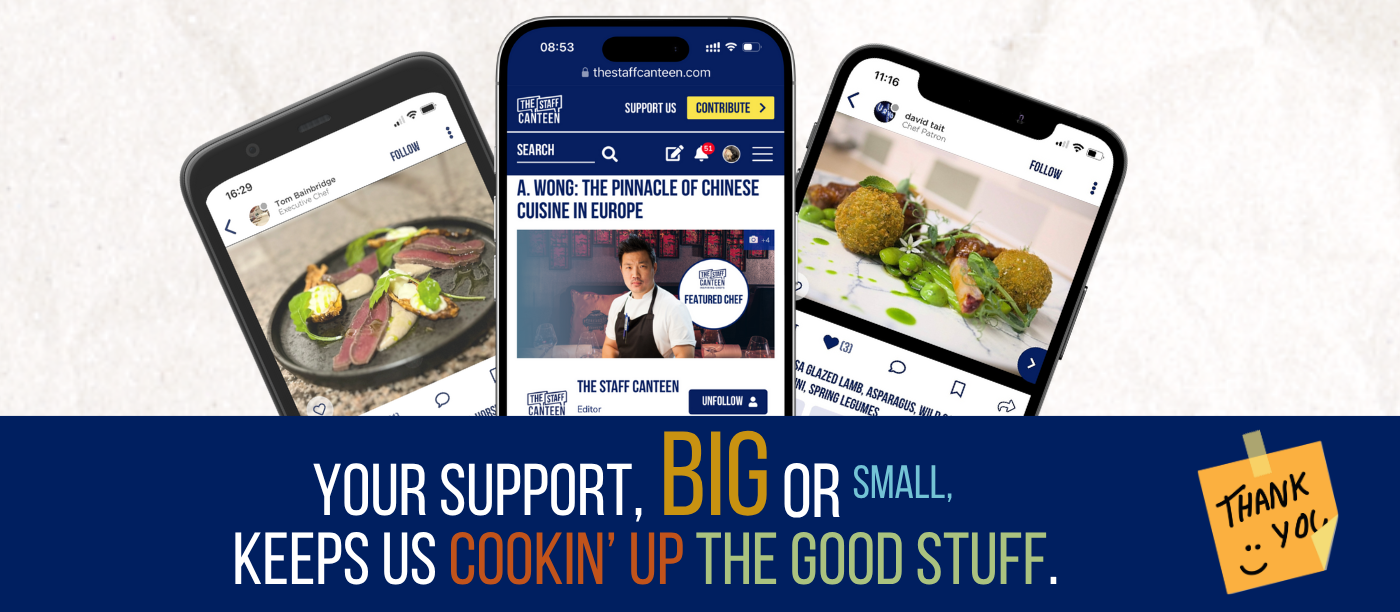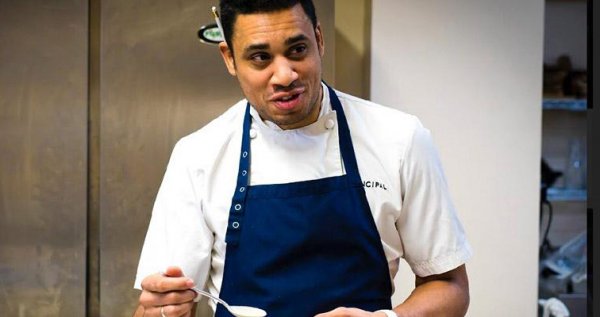'Throughout my career BAME people have been the skivvies of the kitchen, and nobody's done anything about it"

This summer saw the Black Lives Matter movement take the world by storm, irreversibly shifting perspectives when it comes to race and equality in society.
But what of the situation in the hospitality industry? Is diversity on anyone's radar? What is being done to identify and rectify racial inequality within the sector?
To elucidate some of these questions, we spoke to BAME Hospitality founder and life coach Lorraine Copes, an industry veteran who has occupied top procurement positions in the Gordon Ramsay Group, for Shake Shack and now at Corbin and King. Joining us was chef James Cochran, Great British Menu 2018 winner and owner of Restaurant 1251 in Islington, who recently became an ambassador for the newfounded organisation.
What is BAME in Hospitality, what is its purpose and how will it meet its goals?
Explaining what led her to found BAME in Hospitality, Lorraine touched on her experience in the industry, which, she said, allows her a "broader than most insights into businesses and their operations - most importantly diversity."
"What's consistently been the case throughout my career is that diversity often seems reserved to certain pockets of the sector," she added, and that the roles assigned to members of BAME communities are generally "junior back of house" and "junior head office roles."
"That is also compounded by lack of visibility - there are superstars, role models within the sector from Black, Asian or other minority ethnic backgrounds, but they're nowhere to be seen."
Using the example of 1980s TV icon and Jamaican chef Rusty Lee, she said: "She was on television, she opened a restaurant in Birmingham, and since that time - that was like 30 years ago, I can probably count on one hand how many other Black women I've seen on television talking about food since that time."
The group's mission, she explained, "is to drive education, to build community, to amplify voices and accelerate racial equality."
"We do that through three pillars," she continued, describing them as follows: "We build relationships with businesses and individuals who also want to drive equality," with the starting point of data and insights.
To this end the group will soon issue a report, which, Lorraine believes will provide information which "can then be used by our partners to better create inclusion, belonging and diversity."
The second pillar revolves around learning and development, and includes a levelling mentorship scheme, with coaching, training, sponsored learning opportunities being the end goal.
Events will be the group's third area of focus, to amplify voices and "provide education and understanding sector-wide."
The first, named 'The Colour of Wine' will be held throughout the month of September, providing a platform for Black and Asian wine professionals throughout the supply chain to talk about their experiences and perspectives and pairing wines with foods from their heritage.
Why did James join

and what will he be doing for the group?
When Lorraine reached out to ask if he wanted to join the organisation, it was a no-brainer for James.
In amid the Black Lives Matter movement, the chef said he gave several interviews to the media in which he was asked how many Black chefs he has worked with throughout his career.
"I was like: 'I can't even name one.'"
"If you look into our sector, Black, Asian and ethnic minorities are mainly the kitchen porters," he said, and "it's important to me to stand up and be proud and be a voice in our industry saying that there is a massive lack of BAME people in our industry."
Asked whether he believes the issue is considered as such in the industry, he said: "It needs to be talked about throughout the hospitality industry. I don't think people realise it."
"These people who, for example may have come from a third world country to get a job and to find a better life for their family - to become a kitchen porter. There needs to be something in that sector that can build them further up the ladder to eventually become a chef and have more trained skills."
The same applies to people who "come from an estate or a minority ethnic background," he said, in terms of the need to encourage and develop their skills in the kitchen.
Throughout his career, BAME people "have been the skivvies of the kitchen, and nobody's done anything about it."
A beacon of hope
However, during the month of June, Lorraine said, "we saw an awakening of the world," as everyone began talking about race and equality.
"It's not a new problem, but there's been an open willingness to listen in a way that has never happened in my lifetime," she added.
Speaking of his experience, James said: "I've had obstacles through racial abuse," "and I want to say to people that you're not on your own, and that we're here as a movement to eradicate that completely."
Since he moved to London, James said that a lot has changed for the better, but when he did, "I would get racially abused daily - I used to go home crying and my mum used to say to stick it out," "they used to call me four door saloon coon."
"We need to forget the past and understand the tools of how we can move forward."
Prejudice towards BAME communities, Lorraine said is ingrained within British society, "so wanting to drive change - if I have a daughter that wants to work in hospitality, I want her to be confident that she can go in, work hard and be recognised and rewarded on merit."
"My hope," she added, "is that there'll come a point where this business will no longer need to exist because there's no problem."
"If we are living in a world of equality where it's a level playing field for everyone involved, then I needn't do this anymore."
Lorraine said that putting a timeline on the project would be impossible, as "we're trying to undo 400 years or more of what's been created."
"Things have changed. But change is never instantaneous. It's definitely a marathon."

For 17 years, The Staff Canteen has been the meeting place for chefs and hospitality professionals—your stories, your skills, your space.
Every recipe, every video, every news update exists because this community makes it possible.
We’ll never hide content behind a paywall, but we need your help to keep it free.
If The Staff Canteen has inspired you, informed you, or simply made you smile, chip in £3—less than a coffee—to keep this space thriving.
Together, we keep the industry connected. Together, we move forward.














